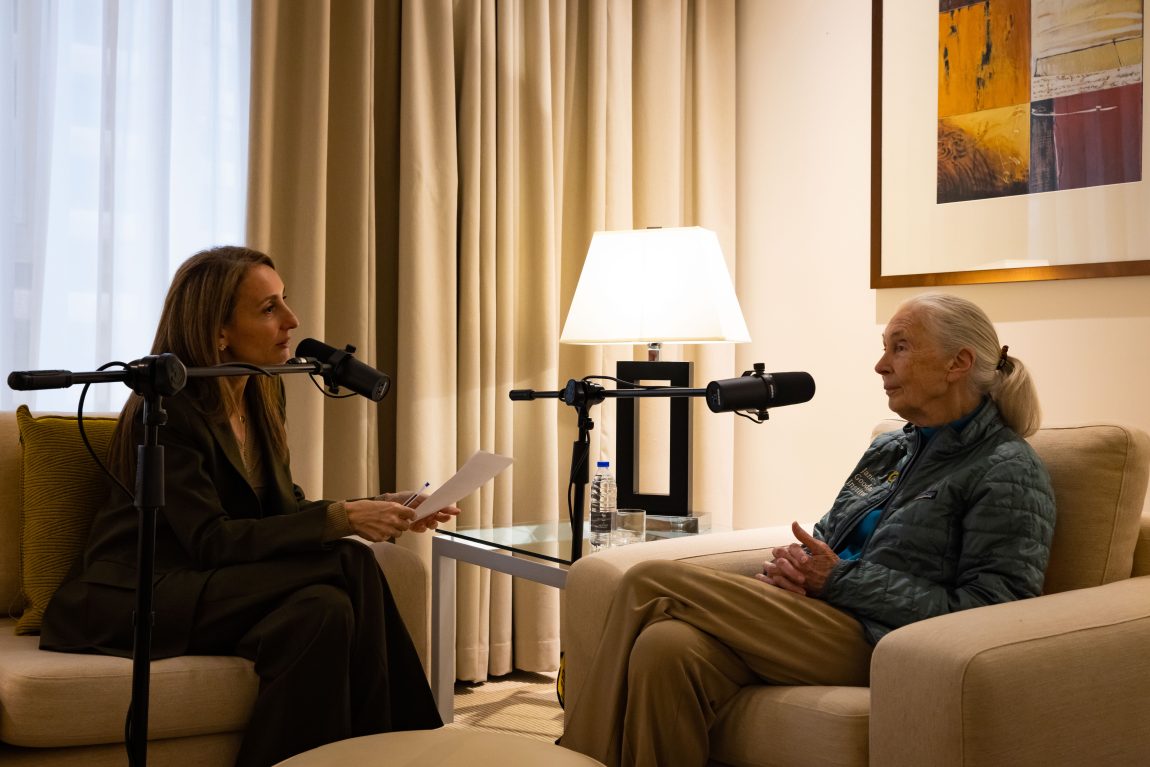
Celebrated conservationist Dr Jane Goodall discusses her lifelong commitment to protecting animals and their habitats, what she wants her legacy to be, and why hope matters.
Overview
Scientist, peacemaker, conservationist, and hope-giver. These are just some of the titles given to Dr Jane Goodall, the British primatologist whose pioneering study of chimpanzees in Tanzania’s Gombe forest in the 1960s reshaped how humans viewed animals.
Six decades later, Dr Goodall continues to blaze a trail, travelling the world to promote community-centred conservation and give hope to young people in the face of growing threats to our climate and biodiversity.
The Jane Goodall Institute (JGI), which today has a presence in more than three dozen countries, runs programmes protecting great apes in their own habitats as well in sanctuaries, encourages better land management through community awareness initiatives, and campaigns against wildlife trafficking.
Celebrating its 30th anniversary in 2023, JGI’s Roots & Shoots initiative is a youth-led grassroots action and learning programme operating in more than 60 countries. During 2021, more than one million young people took part in projects contributing to 300,000 hours of conservation activities.
During a visit to the UAE to meet young people involved in Roots & Shoots, Dr Goodall joined Maysa Jalbout in The Impact Room. Reflecting on her long career – and some of the challenges she has faced along the way – Dr Goodall explains why, despite being nearly 90, she still spends a large part of her time on the road, and why she continues to have hope.
“I see our species as at the mouth of a long, dark tunnel. Right at the end, a little star shines – that’s hope,” she says. “But it’s no good sitting with our arms folded and hoping that star will come. No, we have to roll up our sleeves and we have to climb under, climb over, work a way around the problems that lie between us and the star…like climate change, loss of biodiversity, industrial farming, unsustainable lifestyles, poverty and so many others.”
During the interview, Dr Goodall also talks about what the UAE can achieve through its hosting of COP28, gives her views on extreme environmental campaign movements, and shares a message for philanthropists about how they can support both global and local conservation efforts.
You could listen to all the episodes of The Impact Room here.
About the host
Maysa Jalbout is a leader in international development and philanthropy. Her previous roles include founding CEO of the Abdulla Al Ghurair Foundation for Education, a $1bn philanthropic initiative based in Dubai, and founding CEO of the Queen Rania Foundation. Maysa is a visiting scholar at MIT and ASU, and a non-resident Fellow at the Brookings Institution. Find her on Twitter, @MaysaJalbout.